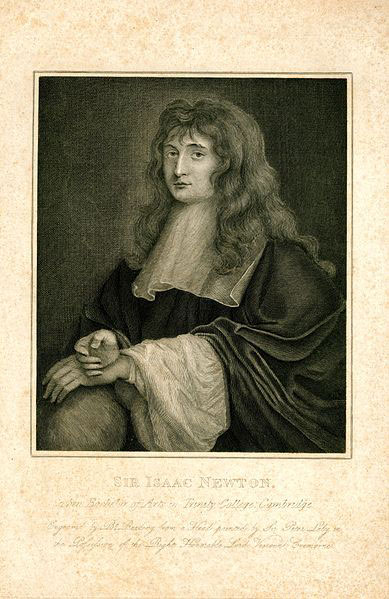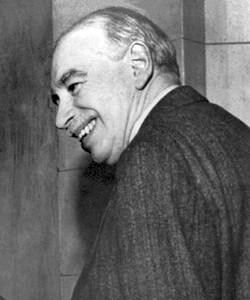Keynes and Newton
by Andrew Boyd
Today, Newton, the man. The University of Houston's College of Engineering presents this series about the machines that make our civilization run, and the people whose ingenuity created them.
In 1946, delegates from around the world met in London to celebrate the three hundredth anniversary of Sir Isaac Newton's birth. And among the carefully selected presentations was a commentary by none other than John Maynard Keynes, arguably the most influential economist of the twentieth century.

Understanding Keynes involvement with the great physicist requires stepping back a couple of centuries. Newton kept notes, letters, and working manuscripts throughout his life. When he died in 1727, boxes of these papers passed into the hands of a family member.
Needless to say, the papers represented a treasure trove of information. Questions persisted about Newton's religious life. Was he indeed a heretic, deviating from church doctrine in the belief of one God in three persons? Or what about other, less prominent rumors. Did Newton engage in alchemy?
For generations Newton's papers were passed down through the family. During that time only a few scholars were given access to them. One scholar, who reviewed the works thirty years after Newton's death, concluded that almost none of what he found was suitable for scholarly publication — entirely missing the historical importance of the papers.
Finally, 145 years after Newton's death, the family donated those papers deemed 'scientific' to Cambridge University. But that left a large collection of 'non-scientific' writings. They remained with the family another sixty-four years. Then the unthinkable happened: they were put up for auction at Sotheby's. Papers providing intimate details into the life of one of history's most exceptional minds were sold one by one into the hands private collectors.
Keynes, a self-described student of history, was told of the auction by his brother. But he was told too late. Before Keynes could put a plan in motion, the auction was over.

Fortunately, this isn't where the story ends. Keynes set about tracking down the items that had been sold. He couldn't gather everything. In particular, many of Newton's theological writings found their way into the hands of a collector named Abraham Yahuda. But Keynes nonetheless gathered a wonderful compilation that he donated to Cambridge upon his death. Yahuda eventually donated his own collection to the National Library of Israel. Newton, by the way, was a profuse alchemist and held many heretical views.
Keynes had hoped to prepare a thorough analysis of the papers in his possession for the celebration honoring Newton. But the Second World War intruded and Keynes had to content himself with a relatively brief commentary. It was entitled 'Newton, the man.' Wrote Keynes, 'Newton was not the first of the age of reason. He was the last of the magicians.' And in part thanks to Keynes, we're better able to glimpse the very human side of the greatest of magicians.
I'm Andy Boyd at the University of Houston, where we're interested in the way inventive minds work.
Notes and references:
The tercentennial of Newton's birth was 1942, but the celebration was postponed because of WW II. Keynes died before the celebration, and his commentary was read by his brother, Geoffrey Keynes.
For related episodes, see ISAAC NEWTON: ALCHEMIST and NEWTON AND THE APPLE, among many others.
A History of [Newton's] Papers. From the website of The Newton Project: http://www.newtonproject.sussex.ac.uk/prism.php?id=20. Accessed June 14, 2012.
J. M. Keynes. 'Newton: the Man.' The World of Mathematics, J. R. Newman, ed. New York: Simon and Schuster, 1956. 277-285.
S. D. Snobelen. 1999. 'Isaac Newton: Heretic.' British Journal for the History of Science, 32: 381-419.
All pictures are from Wikimedia Commons.
This episode was first aired on June 21, 2012